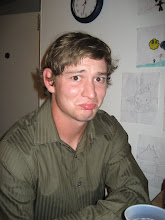Alright, now CS Lewis begins to get into the heart of the matter. His entire first chapter was dedicated to discovering that pain is only a problem under certain circumstances. This chapter, he begins to explain why the option of pain must exist.
First, Lewis begins with an explanation of what we mean by 'impossible' and how that phrase could be followed by 'unless.' There are always some extenuating circumstances that could lead to something else, even if they are not expected, known or understood. He further points out that God cannot do nonsense. Two mutually exclusive opposites cannot both be true. For example, it cannot be both light and dark. That is not a limit to God's power (maybe we are limited in understanding that power) but is nonsense that remains nonsense.
Nature might then be a way to understand a God as uncaring. Lewis points out that we understand ourselves in relation to something outside of ourselves, that we must understand ourselves through contrast of what we are not. Nature must exist in order to form a common leave of experience for man. In order for free will to exist, there must be a choice. In order for choice to exist, there must be at least two different options. Even in a two being system, you can either choose the other over yourself, or yourself over the other.
The world is created as a neutral field of experience. If I walk downhill one direction, someone traveling the other direction must be going uphill. This does not imply evil. The use by man of the neutral world's resources either result in a selfish or selfless action. Either help, or cause pain. Thus, in a neutral ground with free will, choices must be made that can lead to good, or bad. Heath or suffering. It seems almost necessary then, that God created this world. My favorite quote from this chapter is "But such a world [one that had been corrected of the results of abuse] would be one in which wrong actions are impossible, and in which, freedom of will would be void..." He goes on to discuss such rare changes to this system, known as miracles. The rarity and that's-not-supposed-to-happen-ness! is what necessarily marks a miracle.
Another favorite: "Try to exclude the possibility of suffering which the order of nature and existence of free wills involve, and you will find that you have excluded life itself.
Now all of this does not necessarily imply a "good" God. Which is what he writes about tomorrow. Woooohoooo!
Subscribe to:
Post Comments (Atom)




2 comments:
I have never really gotten down miracles-if God never changes, how could he change nature's laws? I believe in them, but don't get them...
Dense stuff riley. Again I must stumble across your blog in some odd backwards fashion. Why do you do this to me?!?
Post a Comment